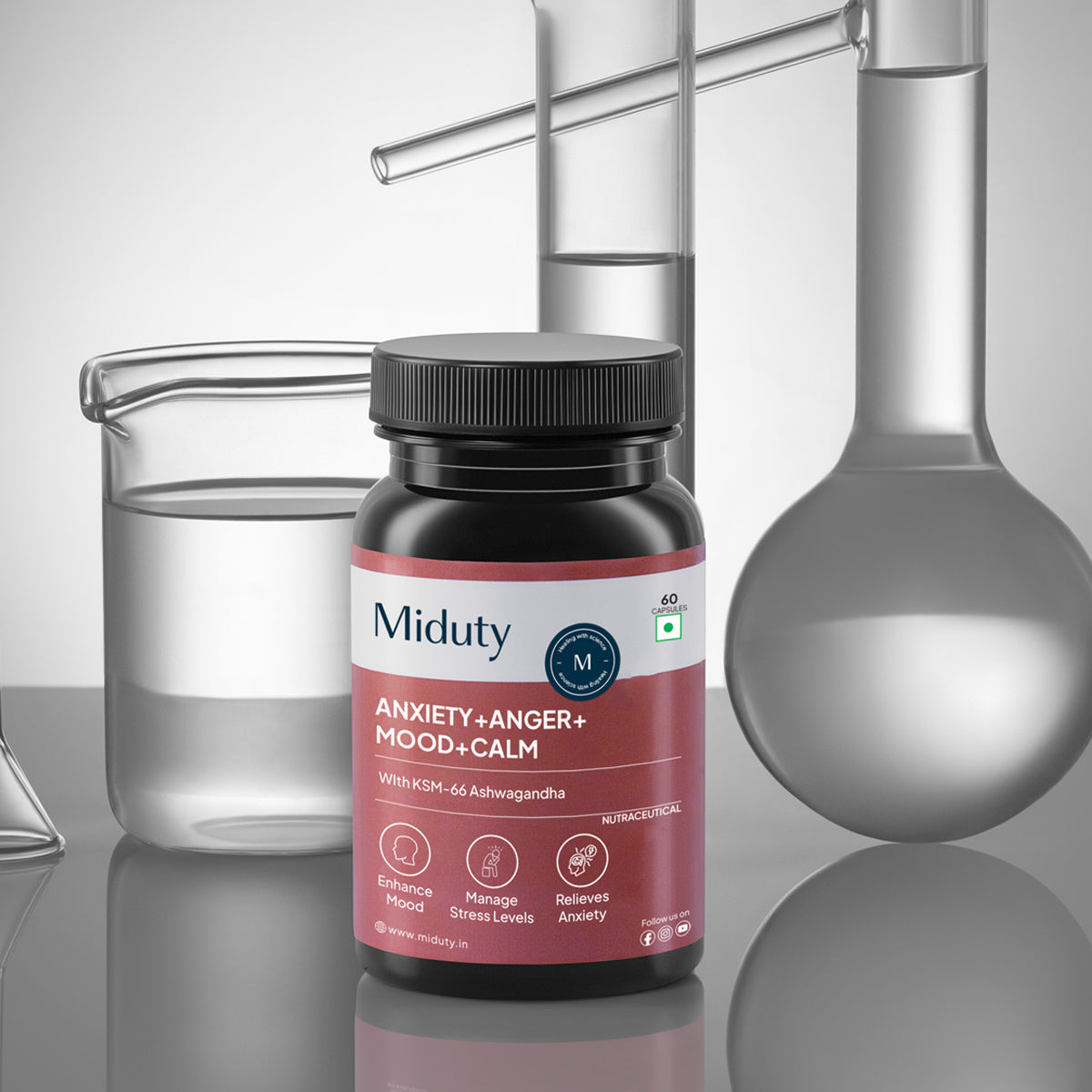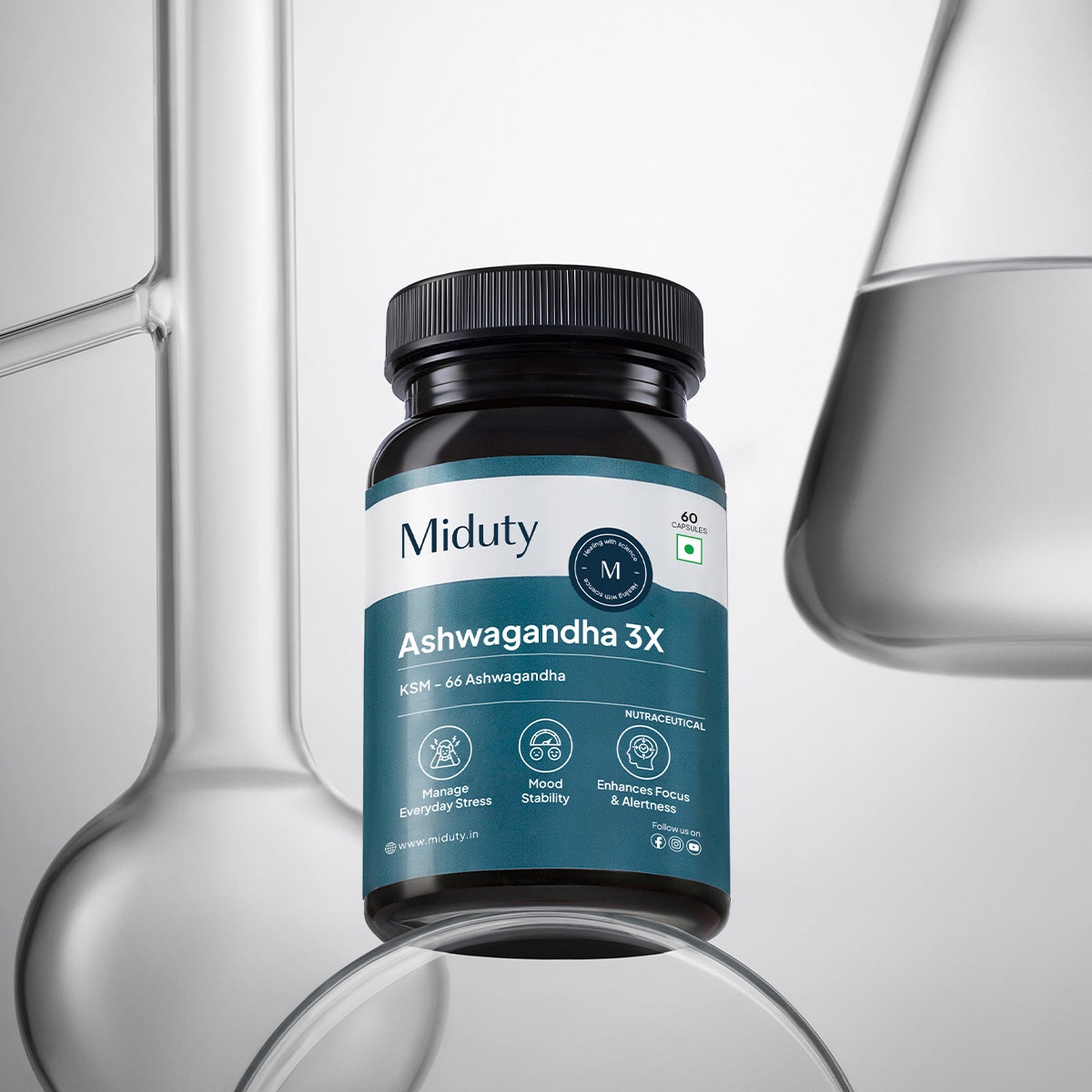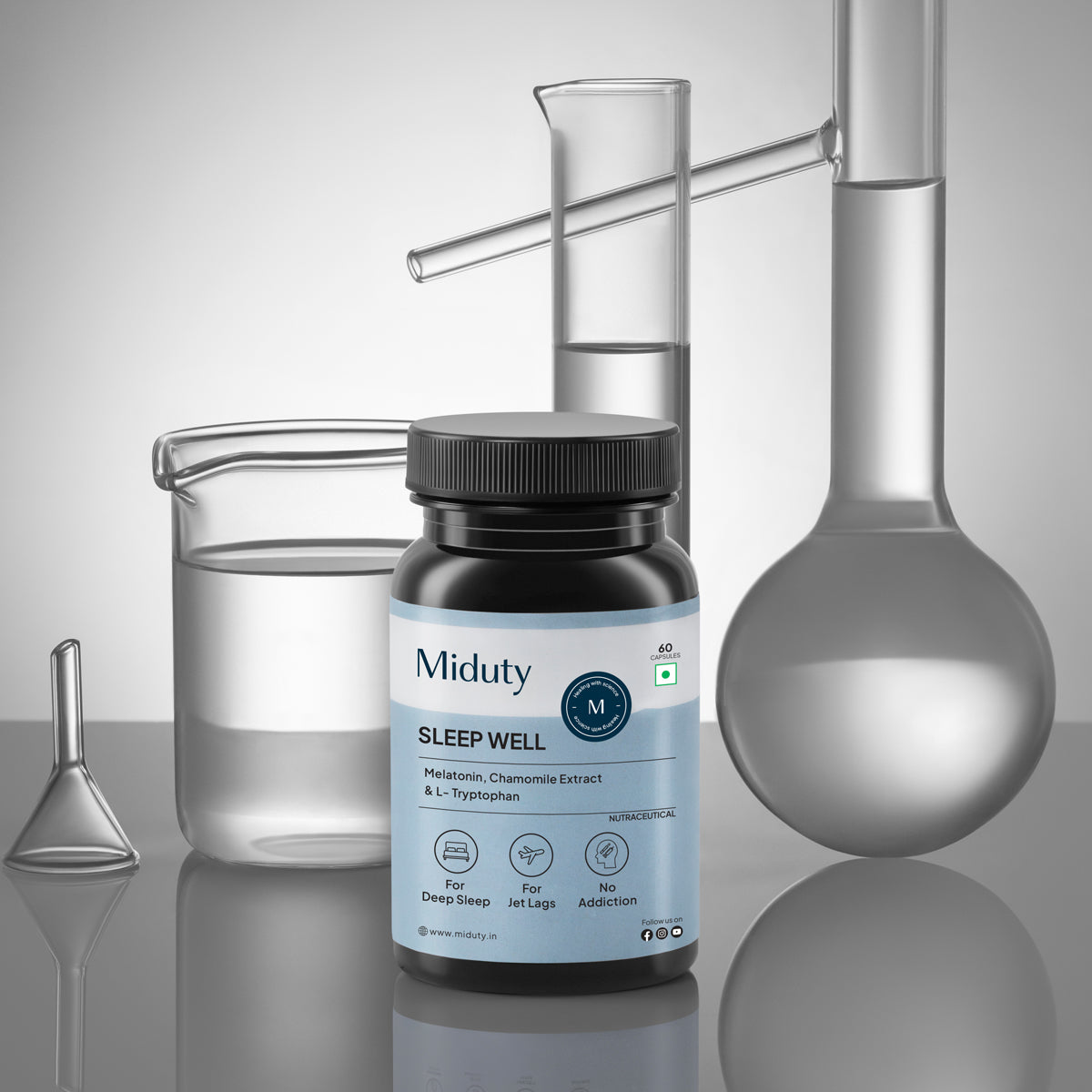
The Role of Magnesium in Managing Anxiety and Depression
Key Takeaways
1. Magnesium is the fourth most abundant mineral in the body and is essential for over 300 biochemical reactions, including brain function and nervous system regulation.
2. Only 1% of magnesium is found in your blood, so a blood test won't give you the full picture of whether you're deficient at the cellular level.
3. Magnesium deficiency is linked to increased stress, anxiety, and depression, which are among the most prevalent mental health conditions globally.
4. Magnesium regulates neurotransmitters like GABA, promoting relaxation and reducing nervous tension. Magnesium controls NMDA receptors, which, when overactive, contribute to anxiety.
5. Magnesium boosts neuroplasticity and increases BDNF (brain-derived neurotrophic factor), which is often low in people with depression.
Did you know that magnesium deficiency has been linked to increased stress, anxiety, and even depression?
According to the World Health Organization, depression is the leading cause of disability globally, while anxiety disorders are among the most prevalent mental health conditions.
As individuals seek solutions through therapy, medications, and lifestyle changes, there's one often overlooked factor that plays a vital role in managing these conditions—Magnesium.
What is Magnesium?
Magnesium is the fourth most abundant mineral in your body, and it's one of the seven essential minerals we simply can't live without. [1]
Magnesium, a crucial mineral involved in over 300 biochemical reactions in the body, directly impacts brain function and the nervous system. [1]
Interestingly, only 1% of magnesium is found in your blood, so a blood test won't give you the full picture of whether you're deficient at the cellular level. [2]
Despite being one of the most abundant minerals in the human body, magnesium is often overlooked when it comes to mental health. Research suggests that low magnesium levels can contribute to mood disorders, as this essential mineral plays a vital role in brain function, nervous system regulation, and stress response.
But how exactly does magnesium influence mental well-being? And what's the best way to ensure you're getting enough of it? In this blog, we'll explore the powerful connection between magnesium and mental health, the science behind its benefits, and the best ways to incorporate it into your daily routine for better emotional balance.
How Magnesium Helps in Managing Anxiety?
1. Magnesium and the Stress Response
Magnesium is often called the "anti-stress mineral." Scientific studies have shown that magnesium helps regulate the stress response by balancing the levels of the hormone cortisol. Elevated cortisol, typically seen in stressful situations, can increase feelings of anxiety. [3]
Research, like a 2017 study published in Frontiers in Psychology, suggests that magnesium supplementation helps lower cortisol levels, thereby reducing stress and anxiety symptoms. [4]
2. Relaxation of the Nervous System
Magnesium plays a vital role in supporting the nervous system, promoting relaxation. It helps regulate neurotransmitters, the brain's signaling molecules that influence mood and anxiety. By stabilizing the function of neurotransmitters like GABA (gamma-aminobutyric acid), which has a calming effect on the brain, magnesium aids in reducing feelings of nervous tension and anxiety. [5]
According to a study in Neuropharmacology (2012), magnesium deficiency has been linked to increased anxiety.
3. Improving Sleep Quality
Anxiety often disrupts sleep, and poor sleep can further increase anxiety. Magnesium promotes better sleep by regulating the nervous system and improving the function of melatonin, the sleep hormone.
A study found that magnesium supplementation improved sleep quality in elderly people who had insomnia, which is a common complaint among those with anxiety. [6]
4. Magnesium's Role in Brain Function
Magnesium influences brain pathways that are directly linked to mood regulation. It helps in controlling the activity of the NMDA receptors in the brain [7], which are responsible for excitability. Overactivation of these receptors is thought to contribute to feelings of anxiety.
How Magnesium Helps in Managing Depression?
1. Magnesium's Impact on Neurotransmitters:
Much like in anxiety, magnesium plays a crucial role in regulating neurotransmitters that affect mood. Magnesium deficiency is associated with symptoms of depression, as it impairs the production and function of serotonin—the "feel-good" hormone. [8]
A study found that magnesium deficiency is significantly more prevalent in those suffering from depression. [9]
2. Enhancing Brain Plasticity
Magnesium supports neuroplasticity, the brain's ability to form new connections and adapt to stress. By enhancing brain plasticity, magnesium aids in improving mood and alleviating depressive symptoms. [10]
Research published in The Journal of Neuroscience (2013) highlights how magnesium supplementation can increase the production of brain-derived neurotrophic factor (BDNF), a protein that supports the survival of neurons and is often low in people with depression.
3. Magnesium as a Natural Antidepressant
Magnesium has been suggested as a natural antidepressant.
In a randomized, controlled trial published in PLOS ONE (2017), magnesium supplementation was found to significantly reduce depressive symptoms in participants with low magnesium levels. The researchers concluded that magnesium could be a promising, low-cost addition to traditional depression treatments. [11]
4. Reducing Inflammation and Oxidative Stress
Chronic inflammation and oxidative stress are linked to both anxiety and depression. Magnesium's anti-inflammatory properties have been shown to reduce these stressors in the brain. [12]
A study in The Journal of Neuroinflammation (2014) discovered that magnesium supplementation could lower markers of inflammation in the brain, potentially improving mood and emotional health.
5. Supporting a Healthy Gut Microbiome
Research suggests that magnesium may also influence the gut-brain connection. [13] A balanced gut microbiome is vital for maintaining mental health, as gut bacteria communicate directly with the brain.
A study in Frontiers in Psychology (2017) indicated that magnesium helps improve gut health, which could be one of the reasons why it is beneficial for managing depression and anxiety. [14]
Signs of Magnesium Deficiency
If you often experience mood swings, fatigue, brain fog, or difficulty sleeping, you may have a magnesium deficiency. Some common signs include:
- Increased levels of anxiety or restlessness
- Frequent headaches or migraines
- Muscle cramps or twitching
- Irritability or mood swings
- Poor concentration and memory issues
What are the Natural Sources of Magnesium?
Processed foods have taken over our daily meals, but did you know they're a major reason behind nutrient deficiencies? If you often feel low on energy or unwell, your diet might be the culprit.
Here are some magnesium-rich foods you can include in your diet.
- Leafy greens (spinach, kale, Swiss chard)
- Nuts and seeds (almonds, pumpkin seeds, sunflower seeds, sesame seeds)
- Legumes (black beans, chickpeas, lentils)
- Dark chocolate (high in cacao content)
- Bananas and avocados
- Fish (Salmon)
- Broccoli
- Beet greens, turnip greens
Try This: If you are having spinach at night, it will help with better sleep due to its high magnesium content. In the morning, you can start your day by adding dark chocolates, followed by almonds, and during the night, have some Cashews for relaxation and sleep well!
Did you know that your body might not be absorbing as much magnesium as you think? Modern farming practices and food processing strip away this essential mineral, making it harder to get enough from diet alone. Plus, high sugar intake can cause your body to flush out magnesium, leaving you deficient without even realizing it.
For better absorption, pair magnesium with calcium, especially if you work out. A 2:1 magnesium-to-calcium ratio before exercise can help support muscle function and recovery. [15]
What is the Minimum Dosage of Magnesium?
The National Institutes of Health recommends the following daily intake of magnesium:
- Children 1-3 years: 80 mg
- Children 4-8 years: 130 mg
- Children 9-13 years: 240 mg
- Teens 14-18 years: Boys 410 mg and Girls 360 mg
- Adults 19-30 years: Men 400 mg and Women 310 mg
- Adults 31+ years: Men 420 mg and Women 320 mg
Choosing the Best Form of Magnesium
1. Magnesium Bisglycinate: Best for anxiety, stress, and sleep. Highly absorbable and gentle on the stomach.
2. Magnesium Citrate: Supports digestion and regular bowel movements, making it great for constipation relief.
3. Magnesium L-Threonate: The best for brain health, improving memory and cognitive function.
4. Magnesium Malate; Ideal for energy production and muscle recovery, often used to reduce fatigue.
5. Magnesium Taurate: Supports heart health and helps regulate blood pressure.
6. Magnesium Chloride: Used for topical absorption, great for muscle relaxation and skin health.
If you're looking for the best magnesium supplement for anxiety and depression, Magnesium Bisglycinate is often the top choice due to its superior absorption and calming effects.
Conclusion
From its ability to reduce stress and anxiety to its role in improving sleep and combating depression, magnesium proves to be an essential nutrient for overall mental health. Despite its importance, magnesium deficiency is alarmingly common due to poor dietary habits, modern farming practices, and lifestyle factors.
Incorporating magnesium-rich foods like leafy greens, nuts, seeds, and dark chocolate into your daily routine is a great start. However, if your diet falls short or if you're dealing with heightened stress or mood disorders, supplementation can make a significant difference. Magnesium Glycinate, in particular, is an excellent choice for anxiety and sleep.
FAQ's on Magnesium for Anxiety & Depression
Q1. Which magnesium is best for anxiety and depression?
Magnesium Bisglycinate is highly recommended for anxiety and depression due to its superior absorption and calming effects on the nervous system. It also supports better sleep and relaxation.
Q2. When is the best time to take magnesium for anxiety?
The best time to take magnesium for anxiety is in the evening or before bedtime, as it promotes relaxation, reduces stress, and helps improve sleep quality.
Q3. What food is highest in magnesium?
Leafy greens like spinach, nuts and seeds (cashews, sunflower seeds, almonds), legumes, and dark chocolate are some of the best magnesium-rich foods.
Q4. How can I get 100% magnesium daily?
Consume a magnesium-rich diet, including spinach, nuts, seeds, avocados, and legumes, or use a high-quality supplement to meet daily requirements effectively.
Q5. What are the symptoms of magnesium deficiency?
Common symptoms include anxiety, fatigue, muscle cramps, headaches, poor sleep, irritability, and difficulty concentrating.
References














